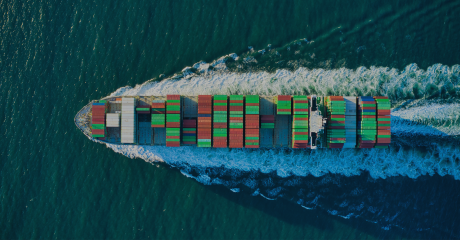What is strategic competition and why is it important?
The deepening rivalry between the United States and a number of countries with conflicting interests has been hailed as a new era of strategic competition. To maintain a peaceful, stable world order and economic progress and deter aggression, the U.S. is working in collaboration with its allies to improve their competitiveness.
Strategic competition has emerged primarily with China and Russia, compelling the U.S. national security community and the Five Eyes (FVEY) alliance, comprising the U.S., Australia, Canada, New Zealand, and the United Kingdom, to innovate new tools of economic security and lawfare to maintain strategic advantage. More aggressive trade controls, foreign investment, supply chain resiliency, and targeted economic sanctions are critical to ensuring a secure, prosperous, and democratic global landscape.
Since the release of the 2017 National Security Strategy, this era of strategic competition has also been referred to among U.S. policymakers and national defense experts as “the great power competition.” While the great power competition refers to national and economic security, the concept is linked to virtually every aspect of defense, strategy, and security, even including the effects of the COVID-19 pandemic.
What’s the latest news in strategic competition?
The relationship between China and the United States has entered a new phase in which the existing bilateral relationship is falling apart. A new relationship framework has yet to be established, and both sides are exploring ways to move forward. However, strategic competition is likely here to stay between the two nations. Even as recently as this year, the Biden administration continues to tighten restrictions on trade with China with the aim of bolstering the U.S. economy and technology industries.
>> Discover the shift in the US and Chinese semiconductor industries <<
In the case of Russia, the U.S. has issued far-ranging sanctions on Russia in the aftermath of the invasion of Ukraine a number of industries, including, but not limited to, the following:
- Banned the import of Russian crude oil, petroleum products, liquefied natural gas, coal, gold, diamonds, seafood, and alcoholic beverages
- Suspended normal trade relations with Russia and Belarus and increased tariffs on otherwise permissible imports from those countries
- Added hundreds of Russian individuals, including Putin, Lavrov, Security Council members, politicians, government officials and ministers, oligarchs, business executives, and their family members to the Specially Designated Nationals and Blocked Persons List, which prohibits Americans from engaging in any transactions with them
- Imposed blocking sanctions on Russia’s largest banks, including Sberbank, VTB Bank, VEB, Alfa Bank, the Russian Direct Investment Fund, the Central Bank of Russia, the National Wealth Fund of the Russian Federation, and the Ministry of Finance of the Russian Federation
- Imposed restrictions on over 2,000 Russian businesses including notable entities such as Rostec, Alrosa, Severstal, United Shipbuilding Corporation, Nord Stream 2 AG, and several aerospace, marine, electronics, defense, and virtual currency mining companies
- Prohibited Russian aircrafts from entering U.S. airspace and Russian vessels from entering U.S. ports
- Prohibited most transactions and activities with individuals and entities in the Russian-occupied Donetsk, Luhansk, and Crimea regions of Ukraine
>> Learn everything you need to know about sanctions compliance <<
How can I run efficient strategic competition investigations?
Mission-critical decisions have global implications, and that is why Sayari provides defense and intelligence professionals with the commercial intelligence data, entity network visualization, and intuitive risk identification they need to take decisive action on strategic competition matters.
>> How to track the assets of Russian oligarchs using public data <<
Purpose-built by investigative professionals for investigative professionals, Sayari automatically harvests and unifies messy, disparate data from across the world – including high-risk, frontier, emerging, and opaque secrecy jurisdictions – to enhance commercial networks visibility for analysis.
Military planners and national security practitioners use Sayari Graph to map out direct cost imposition campaigns to degrade competitors’ foreign military expeditions. Users can impose direct and collective costs by identifying key businesses and individuals used by China and Russia to operate in the gray zone. Sayari Graph illuminates strategic competitors’ use of commercial networks to facilitate:
- Economic sanctions
- Export controls
- Diplomatic initiatives
- Intelligence sharing
The radical network transparency made possible by Sayari has resulted in countless discoveries, including deeper intelligence on entities named in the Pandora Papers, 500+ entities majority-owned by Chinese military-affiliated companies, and millions of dollars worth of Russian assets eligible for seizure by the Ukrainian government.



